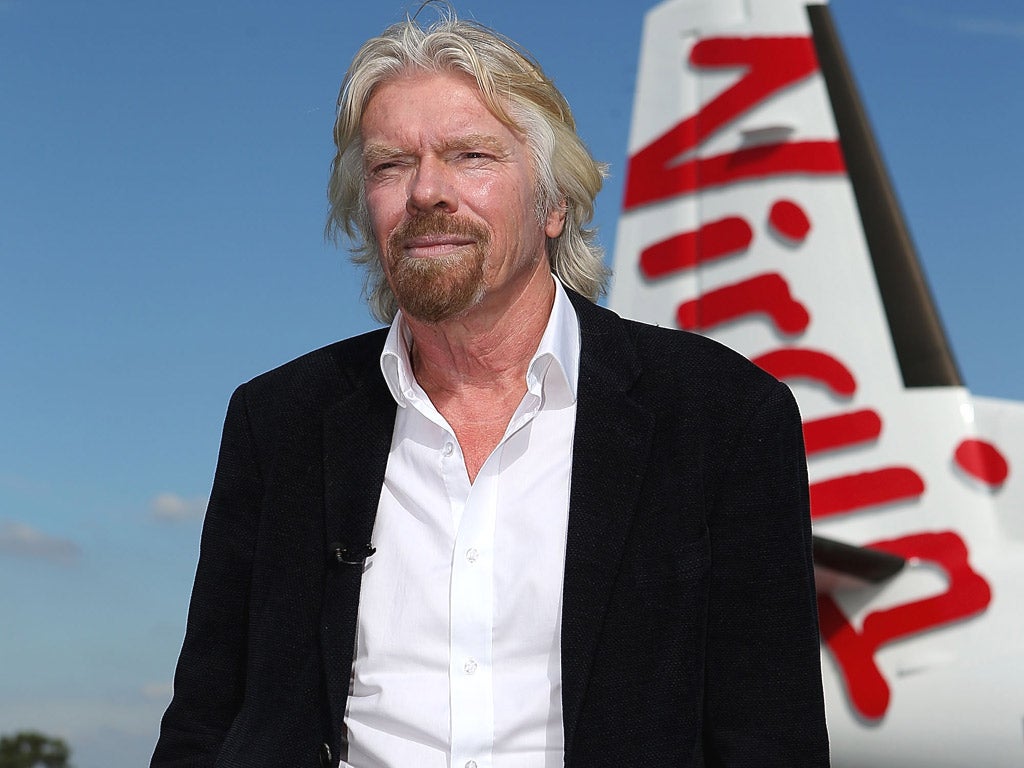Richard Branson's $500m mission to boldly go raises more questions than answers
Outlook

Richard was persuaded to invest when he bumped into Greg at the bar at Neckar. Will got involved while chatting to Paul at Davos, and Tom just loves to work with all those guys.
So it was that Sir Richard Branson, Qualcomm chief Paul Jacobs and Tom Enders of Airbus – three of the world’s most successful businessmen – got on board the Silicon Valley tycoon Greg Wyler’s OneWeb idea for a cosy blanket of mini-satellites around the world. And then persuaded one of the most famous pop stars in the world, will.i.am, to serve as a frontman. Oh yes, and along with a few other multinationals, their companies have chipped in to raise $500m of stage one funding for it.
If you think it all sounds a bit easy, then you’d be right. While the idea of launching 900 mini-satellites to provide broadband to every community on the planet sounds wonderful, many a potential asteroid could wreck the whole project. Among them: Will Airbus really be able to make the satellites at a rate of four a day to hit the deadline? Will Virgin’s LauncherOne satellite-launching rocket be operational by then, given the troubles besetting its smaller passenger craft? Will the vast network really be able to communicate seamlessly with each other and the ground without interfering with other signals? Who will pay for the $250 apiece terminals in the schools and other community hubs of remote African villages? Will OneWeb clash with the rival planned constellation known as LeoSat, or be made irrelevant by Google or Elon Musk’s rival efforts? And, perhaps most importantly, will Airbus really be able to build the satellites for just half a million dollars each?
Then there’s Greg Wyler himself. He is undoubtedly an engaging salesman and charming human being. Mr Enders describes him as a fantastic engineer, too.
But I wasn’t entirely convinced by his explanation of why he left O3B – the previous satellite constellation he set up to provide internet to the world’s poorest countries. He said he quit because it had a strong management team in place, but is that a reason? Why didn’t he stick around to launch OneWeb there?
After O3B he joined Google’s internet satellite space project in 2013, before quitting amid talk he was working with Mr Musk’s Space X. It could all simply have been the crucial learning process leading up to OneWeb’s successful launch, of course. But it doesn’t feel like an entirely substantial track record, or explain why O3B’s backers didn’t appear to have followed him to his new venture.
Perhaps most disappointing, though, is why a business with enough philanthropic goals to bring in the well-intentioned will.i.am should set itself up in the offshore haven of Jersey. Wyler denies it’s for tax reasons, but I wish he’d chosen a different spot for his launchpad.
Join our commenting forum
Join thought-provoking conversations, follow other Independent readers and see their replies
Comments
Bookmark popover
Removed from bookmarks